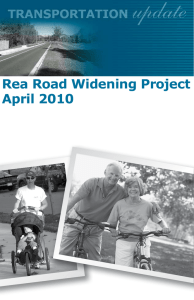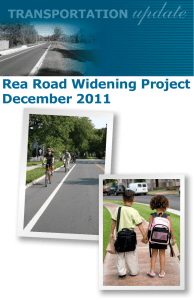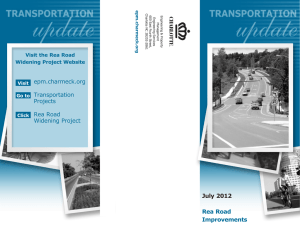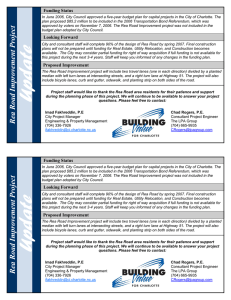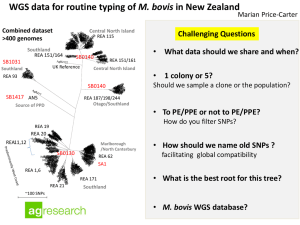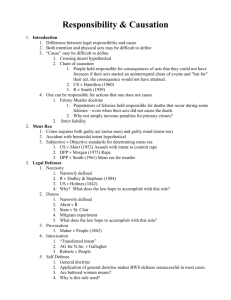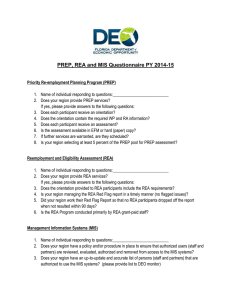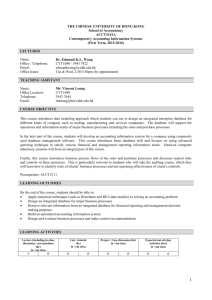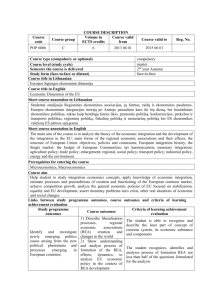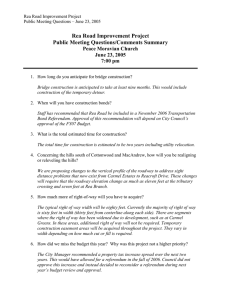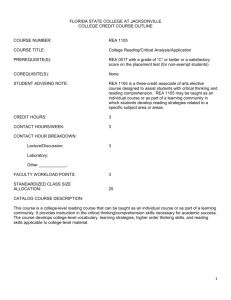Rea Road Project City of Charlotte
advertisement
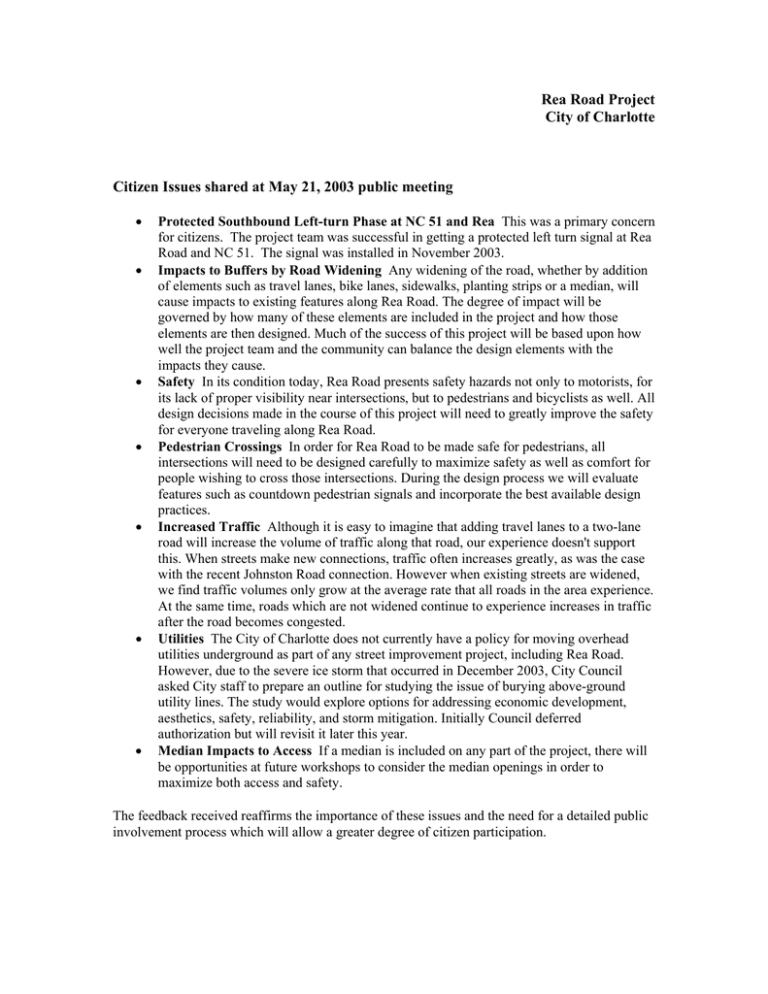
Rea Road Project City of Charlotte Citizen Issues shared at May 21, 2003 public meeting • • • • • • • Protected Southbound Left-turn Phase at NC 51 and Rea This was a primary concern for citizens. The project team was successful in getting a protected left turn signal at Rea Road and NC 51. The signal was installed in November 2003. Impacts to Buffers by Road Widening Any widening of the road, whether by addition of elements such as travel lanes, bike lanes, sidewalks, planting strips or a median, will cause impacts to existing features along Rea Road. The degree of impact will be governed by how many of these elements are included in the project and how those elements are then designed. Much of the success of this project will be based upon how well the project team and the community can balance the design elements with the impacts they cause. Safety In its condition today, Rea Road presents safety hazards not only to motorists, for its lack of proper visibility near intersections, but to pedestrians and bicyclists as well. All design decisions made in the course of this project will need to greatly improve the safety for everyone traveling along Rea Road. Pedestrian Crossings In order for Rea Road to be made safe for pedestrians, all intersections will need to be designed carefully to maximize safety as well as comfort for people wishing to cross those intersections. During the design process we will evaluate features such as countdown pedestrian signals and incorporate the best available design practices. Increased Traffic Although it is easy to imagine that adding travel lanes to a two-lane road will increase the volume of traffic along that road, our experience doesn't support this. When streets make new connections, traffic often increases greatly, as was the case with the recent Johnston Road connection. However when existing streets are widened, we find traffic volumes only grow at the average rate that all roads in the area experience. At the same time, roads which are not widened continue to experience increases in traffic after the road becomes congested. Utilities The City of Charlotte does not currently have a policy for moving overhead utilities underground as part of any street improvement project, including Rea Road. However, due to the severe ice storm that occurred in December 2003, City Council asked City staff to prepare an outline for studying the issue of burying above-ground utility lines. The study would explore options for addressing economic development, aesthetics, safety, reliability, and storm mitigation. Initially Council deferred authorization but will revisit it later this year. Median Impacts to Access If a median is included on any part of the project, there will be opportunities at future workshops to consider the median openings in order to maximize both access and safety. The feedback received reaffirms the importance of these issues and the need for a detailed public involvement process which will allow a greater degree of citizen participation.
